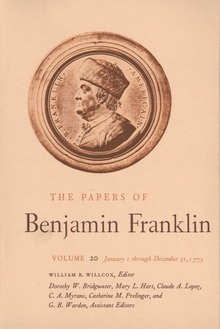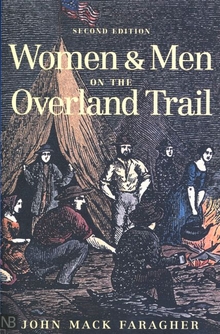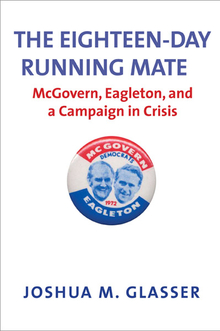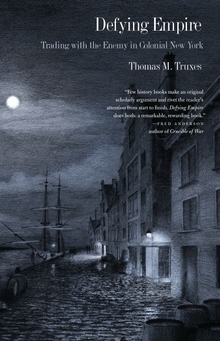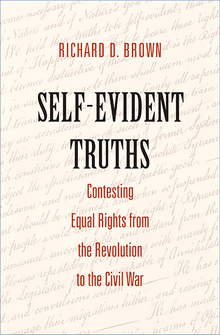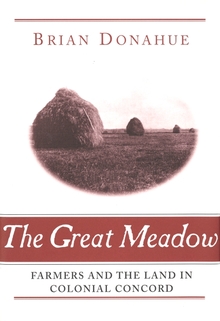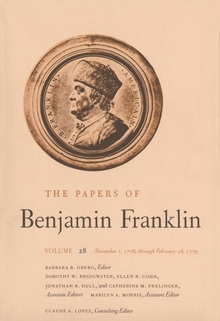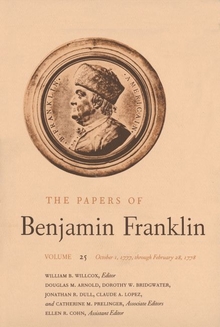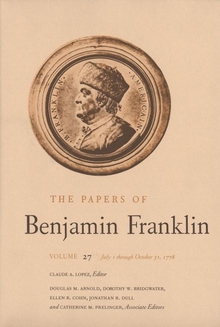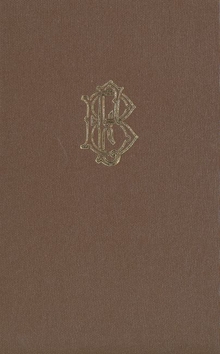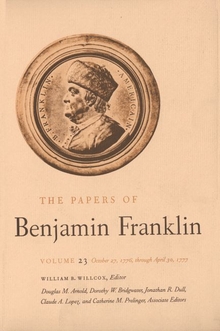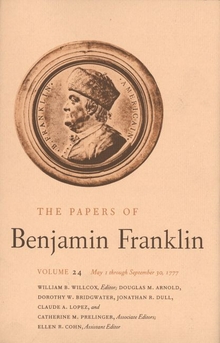The Papers of Benjamin Franklin, Vol. 20
WARNING
You are viewing an older version of the Yalebooks website. Please visit out new website with more updated information and a better user experience: https://www.yalebooks.com
Volume 20: January 1 through December 31, 1773
Benjamin Franklin; Edited by William B. Willcox
Franklin’s activities in 1773 were as multifarious as ever, but behind them were two developments that closely affected his future. One was the growing impact on him and his London world of the shock waves emanating from Boston—the constitutional debate between Governor Hutchinson and his opponents in the General Court, the petition from the House of Representatives for the removal of the Governor and Lieutenant Governor, and in December the Tea Party. The Bostonians were more and more openly defiant, and their agent was almost as busy in antagonizing Whitehall. His revelation on Christmas Day that he had obtained and send the Hutchison letters were only the latest in a series of provocations during the year. In June he published, with a preface of his own, a set of radical resolutions passed by the Boston town meeting November, 1772; and in September he attacked British policy in his two famous satires, “Rules by Which a Great Empire May Be Reduced to a Small One” and the “Edict by the King of Prussia.”
The other development that affected his future was the appearance of the first comprehensive French translation of his works. Hitherto only small snippets of what he had written in the past two decades had been available to the French-speaking intelligentsia of Europe. Now the whole man, shrewd, wide-ranging, and voracious in his curiosity, was there to be seen; and his stature commanded recognition. At the moment when his political position in England was being eroded, his place in the Enlightenment was becoming more secure.
The other development that affected his future was the appearance of the first comprehensive French translation of his works. Hitherto only small snippets of what he had written in the past two decades had been available to the French-speaking intelligentsia of Europe. Now the whole man, shrewd, wide-ranging, and voracious in his curiosity, was there to be seen; and his stature commanded recognition. At the moment when his political position in England was being eroded, his place in the Enlightenment was becoming more secure.
William B. Willcox is professor of history at Yale University.
"This volume is an excellent addition to an outstanding editorial project. The notes are concise and the text is not excessively annotated. Moreover, the index, perhaps the most important feature of such a volume, is outstanding."—David Ammerman, American Historical Review
"The reader lays this volume down in awe of the editor's industry and erudition. The footnotes are far more copious than in any preceding volume and the information they contain is proportionally greater. One wonders how it was possible to discover so much about many of the obscure topics and persons who appear in the volume. What Professor Wilcox and his colleagues have given us is a tour de force of editorial enterprise."—James H. Hutson, Pennsylvania Magazine of History and Biography
"These volumes are rewarding and comfortable to read because they inspire continued confidence in the detailed knowledge and general understanding of the editors. The years 1771 and 1772 represented an interval when the intensity of controversy between the colonies and England receded, and solutions to continuing problems seemed increasingly possible. Benjamin Franklin experienced directly the persisting conflicts between Massachusetts and England, but he had the satisfaction of seeing Lord Hillsborough, his most adamant antagonist, eased out of office as secretary of state for the colonies and replaced by the more friendly Lord Dartmouth. In England, Franklin enjoyed the company of circles friendly to the colonies and personally congenial to to him. The clearest evidence of this happy lull is present in this correspondence, which is concerned with colonial cultural and social life, especially that of Philadelphia, and with science, especially electricity. Moreover, Franklin participated in these affairs more deeply and creatively than he has found possible when intense imperial crises were dominant. The editors have called in the best advice whenever needed in annotating the important electrical and other scientific papers presented here. Their own careful study and evaluation shows throughout the volumes. Notable is a familiarity with the several American communities represented. The mastery of imperial politics continues and provides the best possible framework within which to view these years. The historians of science and of American social and cultural history are well served."—Journal of American History
"Yale is to be congratulated, in these years of austerity, in being able to sustain this project, and to produce, on time and in handsome format, this impeccable series of volumes. Professor Labaree (who edited the first fourteen volumes) and Professor Willcox who took over in 1971, are to be saluted on their standards and on their scholarship."—Esmond Wright, Journal of American Studies
"There is a peculiarly animated quality to Franklin's every thought and project that infuses each volume of this superb edition with fascination. The supremely energetic and shred man, Franklin, is revealed to great advantage in his letters, essays, and return correspondence. More than that, each new volume provides intimate access to an age we little understand and a revolutionary struggle we little enough appreciate. 1773 was the year of Bostonian defiance of Hutchinson, of the erosion of Franklin's political position in London, and of the first complete French edition of Franklin's works. What relish there is to sit by the day over Franklin's shoulder in a fateful time."—Virginia Quarterly Review
"The Franklin papers continues to be the best historical publications project in existence, with the highest standards of scholarship and with annotation that is informative, intelligent, and gracefully expressed."—Charles Crowe, William and Mary Quarterly
"This stout volume provides hours of enjoyment. Franklin's wide-ranging interest, his humor and genius, and intrinsic appeal enliven many of the approximately three hundred items gathered from twenty-five institutions and three individuals. The editorial work enhances the papers in many ways. Willcox and his assistants continue their superior work, and this volume should attract many readers."—Pennsylvania History
ISBN: 9780300019667
Publication Date: September 10, 1976
Publication Date: September 10, 1976
656 pages, 5 3/4 x 8 5/8

